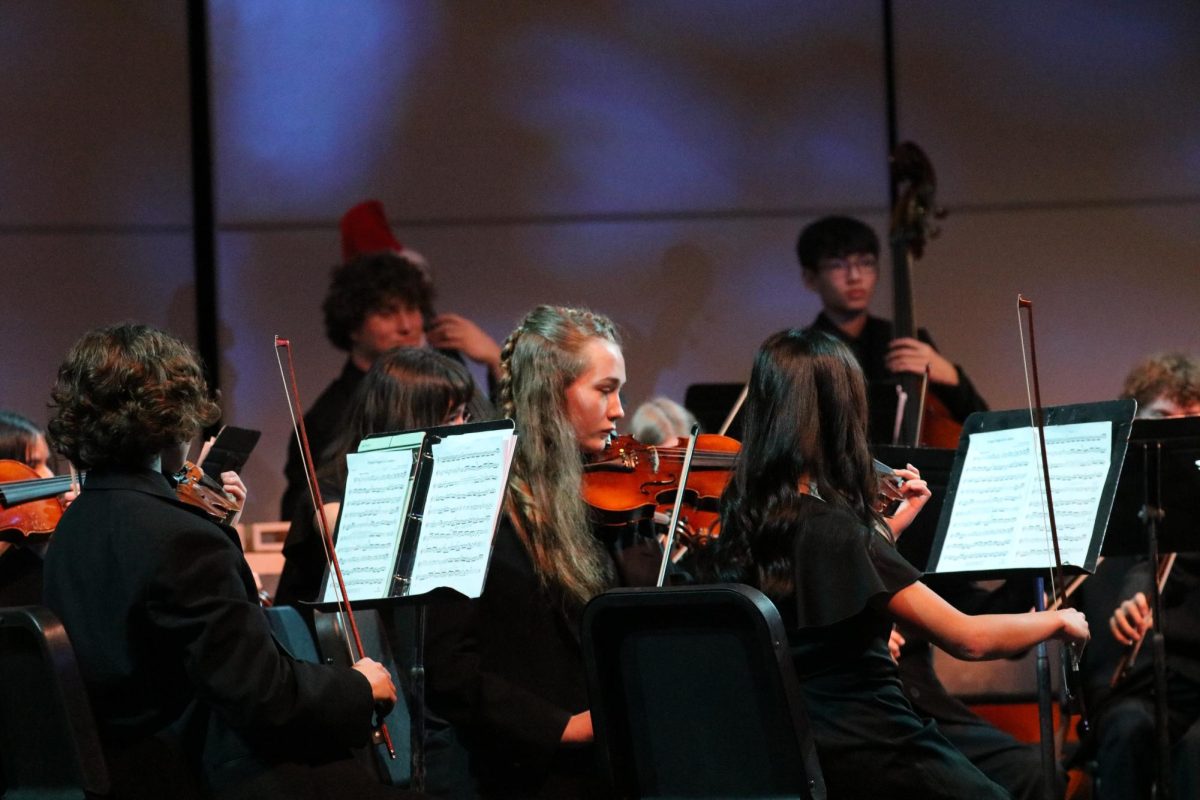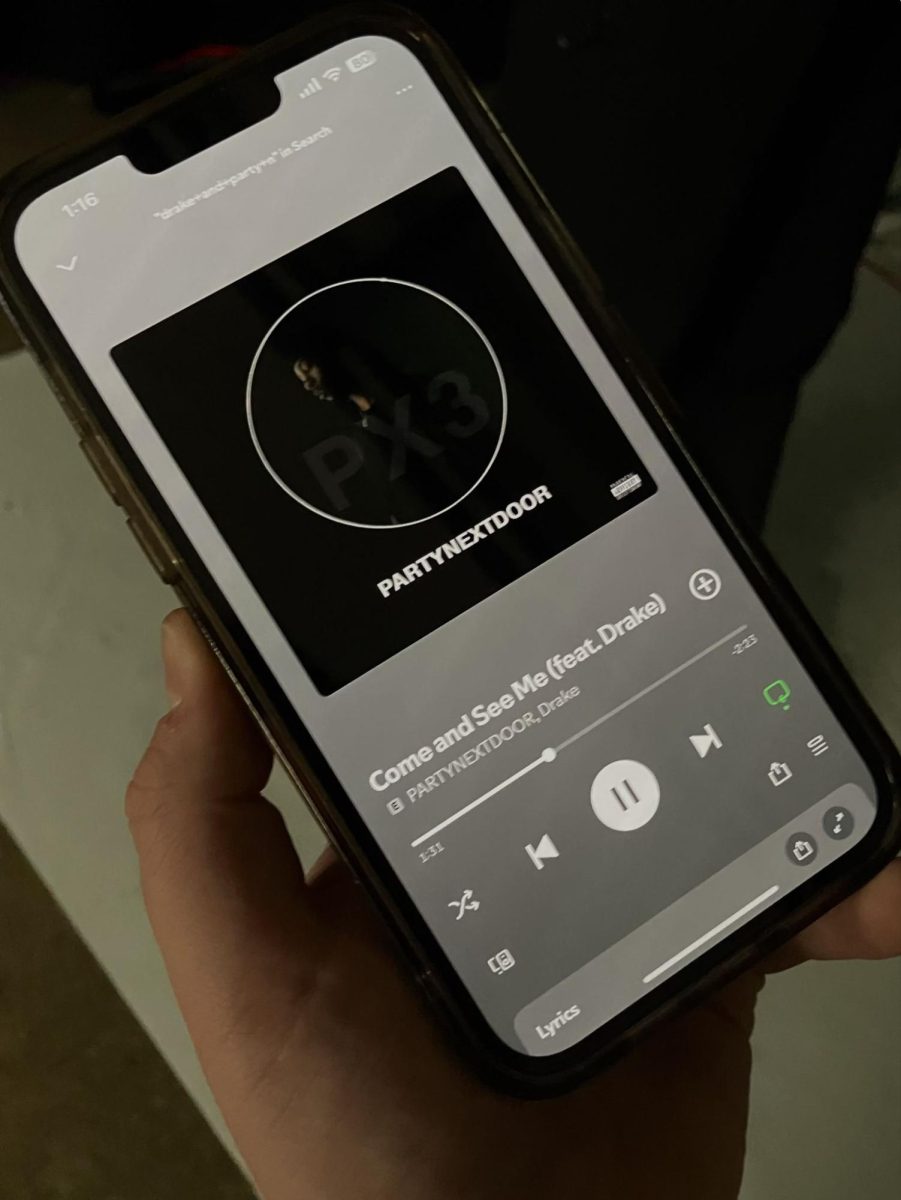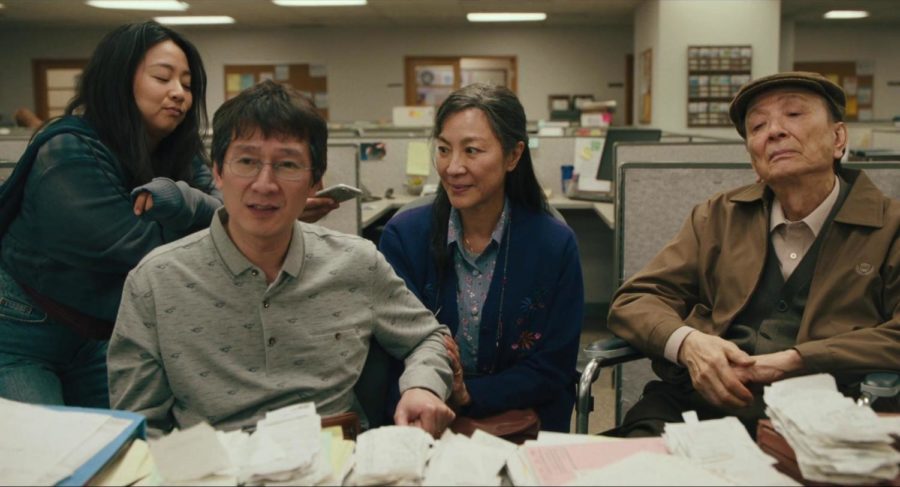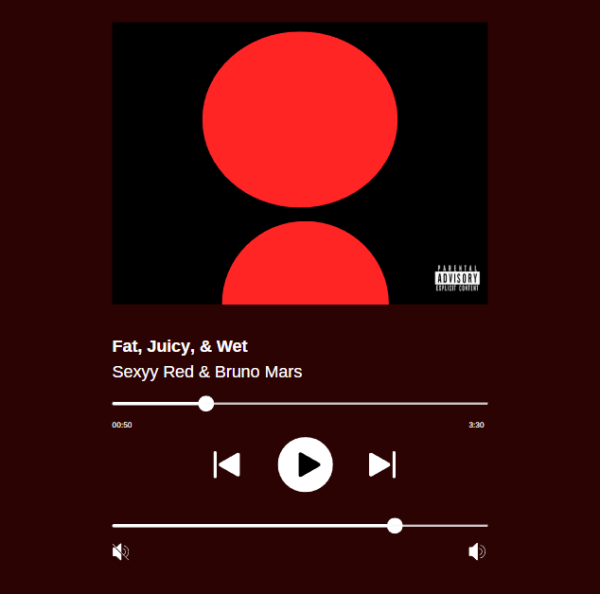For your consideration: ‘Everything Everywhere All at Once’ brings representation and the multiverse to the 2023 awards season
No matter how harrowing tax season may be, the Wang family stayed loyal to one another. From left to right, Joy (Stephanie Hsu), Waymond (Ke Huy Quan), Evelyn (Michelle Yeoh) and Gong Gong (James Hong) are pictured at one of their IRS meetings.
Though “Everything Everywhere All at Once” is yet another film chronicling the complexities of the multiverse, it has already made history within the 2023 awards season. Actress Michelle Yeoh is the first Asian woman to receive a Lead Actress Oscar nomination, earned for her performance in “Everything Everywhere All at Once,” with her co-stars also garnering nominations in the Supporting Actor or Actress category.
Ke Huy Quan makes his return to the silver screen after a 30 year acting hiatus as Waymond, the seemingly meek husband of Michelle Yeoh’s character, Evelyn. Together Waymond and Evelyn own a laundromat, after immigrating to the United States from China and raising their daughter, Joy (Stephanie Hsu).

The film opens on Evelyn doing taxes and preparing for a Lunar New Year party at the laundromat. As she runs around in a frenzy, she consistently underestimates Waymond’s ability to complete tasks, whilst the viewers watch him run around rapidly solving problems. The tension between the couple at the start is two-pronged— Evelyn is nervously preparing for the laundromat to be audited by the IRS, and Waymond is about to serve Evelyn divorce papers. On top of all this, Joy has come home to visit accompanied by her white girlfriend, of whom Evelyn disapproves.
What follows are three acts aptly entitled “Everything,” “Everywhere,” and “All at Once.” Viewers continue to meet characters such as Evelyn’s father Gong Gong (James Hong) and IRS inspector Deirdre Beaubeirdre (Jamie Lee Curtis) as Alpha-Waymond introduces Evelyn to the multiverse. While Waymond remains in Evelyn’s main universe, Alpha-Waymond inhibits his body and teaches Evelyn how to “verse jump,” a technology developed in another universe where humans can activate skills from other versions of themselves from other universes. Through the unique plot structure, it becomes increasingly clear that despite the unorthodox nature of “Everything Everywhere All at Once,” the film captures a certain “joie de vivre,” or in some cases a lack of it.

Possibly the most interesting subtlety of “Everything Everywhere All At Once” is the motif of yin and yang. Though it is more so a philosophical concept than a visual idea in Chinese culture, the image of a split circle with white and black coloring and dots has been commodified in Western culture through tattoos, jewelry, and other art forms. The film uses the concept of light and dark visually to represent how in every relationship or situation, there is good and bad. The everything bagel created by antagonist Jobu Tupaki and the googly eyes placed around the laundromat are examples of yin and yang being represented in different ways, with the same idea. The bagel represents the idea of life mostly being bad, while the googly eye represents life being most good— all similar to the glass half empty or half full concept.
It is intricate details like these that has brought “Everything Everywhere All at Once” the success it has had in the 2023 awards season. Along with Yeoh’s Best Actress Oscar nomination and a slew of honors from other awards ceremonies, Quan, Hsu, and Curtis were nominated in the Supporting Actor and Actress categories for their performances. With Yeoh, Quan, and Hsu’s nominations, there are a record number of Asian actors up for an Oscar this year. Historically, just 34 acting Oscars have gone to non white actors, out of 348 total. Though the Academy of Motion Pictures has shown growth in both their nominations and winners in recent years, it is jarring to think that since the dawn of the Oscars in 1929, no Asian actress has earned the honor of being nominated for Best Actress.
Yeoh gives the performance of a lifetime in “Everything Everywhere All at Once.” If Yeoh were to not win Best Actress, this wouldn’t be the first time she was snubbed by the Academy. 23 years ago, she starred in the Chinese film “Crouching Tiger, Hidden Dragon,” and said film was nominated in 10 categories at the 2001 Oscars. All 10 of those categories were solely for behind the camera work. Upon closer glance at the Best Actress nominations, supporting or lead, all nominees were white at the 2001 Oscars. If not for her demonstration of innate acting and martial art ability, Yeoh not only deserves Best Lead Actress because of her profound performance, but also because she has been looked over for years due to the Academy’s systemic bias.
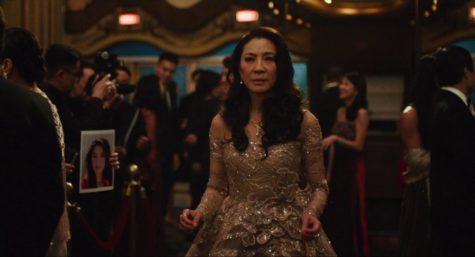
Scoping out the competition “Everything Everywhere All at Once” has for Best Picture, few can hold a candle to the truly unique spectacle that the film brings to the table. Films like “The Banshees of Inisherin” and “Triangle of Sadness” have earned the respect of film critics through reputable performances, however they don’t differ extremely from nominees of past years. “Everything Everywhere All at Once” combines immigrant stories with colorful martial arts, while managing to keep viewers on the edge of their seat wondering what Evelyn, Waymond, and Joy’s futures look like without the multiverse at play.
“Everything Everywhere All at Once” also stands out from the pack through the relationships that define the film’s emotional core. The glory that Evelyn feels when she sees her life in an alternate universe as a famous kung fu movie star blinds her from her reality where Waymond is serving her divorce papers. The vision of that universe brings Evelyn to say to Waymond, “I saw my life… without you… I wish you could have seen it… it was beautiful.”
The harshness of this line on Waymond who knows nothing about the multiverse is quickly resolved as Alpha-Waymond takes over his body and continues to explain verse jumping to Evelyn. As seen through shots that speed through every universe variant on Evelyn, every Evelyn is vastly different, but the Evelyn who viewers see the most of is actually the most flawed, according to Alpha-Waymond. It is those imperfections that make her the only Evelyn that can save the multiverse, and learn how to fight the powers trying to destroy the world.

Though verse jumping has its appeals at first, it also proves to be erroneous at times and easily manipulated by external forces, such as Joy’s nihilistic Alphaverse alterego Jobu Tupaki. Jobu Tupaki is a manifestation of the pressure Evelyn puts on Joy in every universe, and the creation of the everything bagel that could destroy the universe is the primary conflict of their multiverse battles. However in their primary universe, Evelyn and Joy’s tense relationship is the direct parallel to the war in the multiverse. Joy feels like a disappointment in Evelyn’s eyes, and Evelyn doesn’t feel like her daughter comes home enough. The flaws within both of their perspectives and the failures they have experienced are what leads to the culmination of the film and the reparation of Joy and Evelyn’s relationship.
The depth of all the relationships in “Everything Everywhere All at Once” transcends universes, and is something unseen by a film nominated for Best Picture since “Lady Bird” was nominated at the 2018 Oscars. Now five years later, perhaps the Academy will see the merit of mother-daughter stories told on screen through both wild adventure and heartfelt dialogue. All the everything bagels and googly eyes set aside, “Everything Everywhere All at Once” has 11 nominations going into the Oscars on Mar. 12, and the film’s historical nominations will remain a legacy for the AAPI community.
For more opinions on the 2023 Oscars, listen to the latest episode of The West Linn Weekly Wake Up, hosted by print editor-in-chief Audrey Lippert and web editor-in-chief Karina Rower.
Your donation will support the student journalists of West Linn High School. Your contribution will allow us to continue to produce quality content by purchasing equipment, software, and continuing to host our website on School Newspapers Online (SNO).

When she's not writing for wlhsNOW.com and the Amplifier, Karina Rower, senior, enjoys working to promote diversity with Affinity Club and volunteering...

Audrey Lippert is a senior at West Linn High School. This is her fourth year taking journalism, and Lippert most enjoys writing current events articles,...

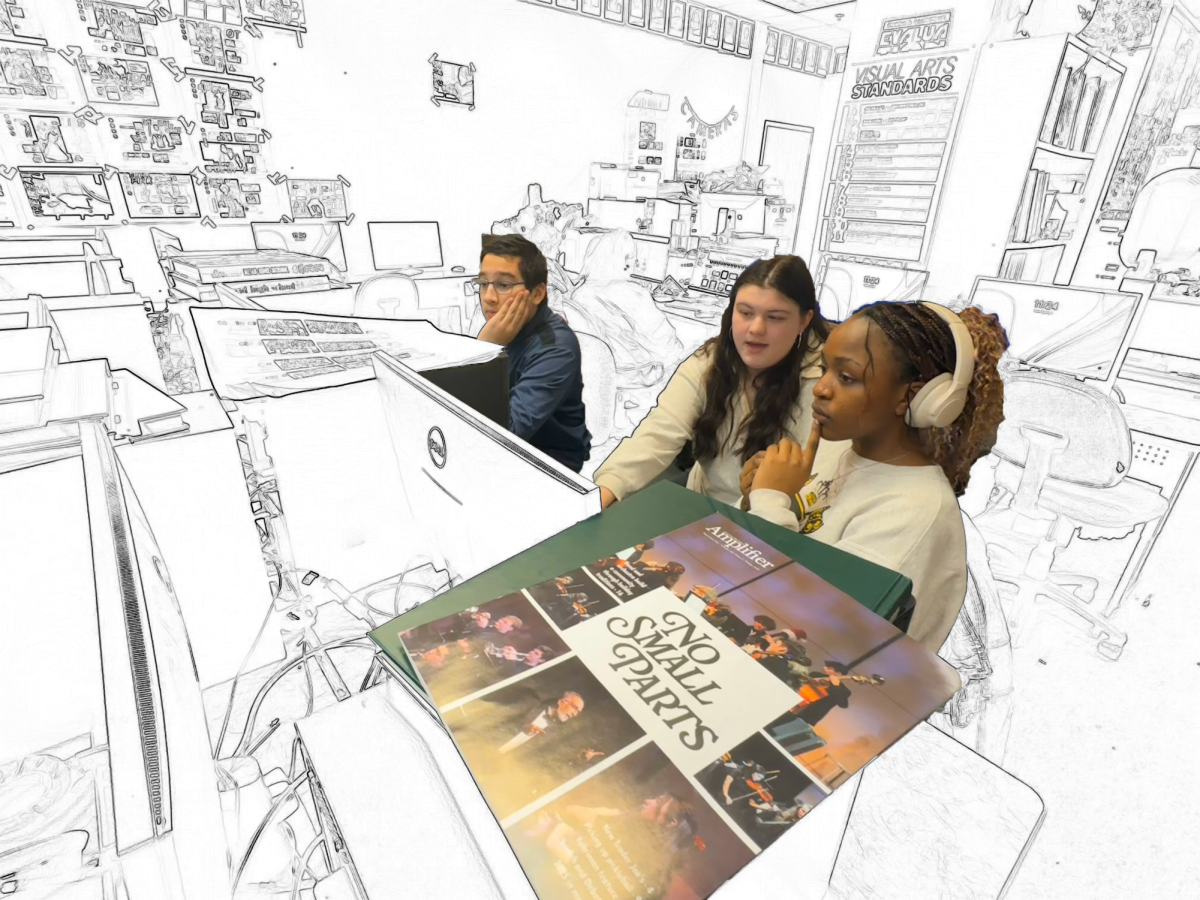


![Reaching out. Christopher Lesh, student at Central Catholic High School, serves ice cream during the event on March 2, 2025, at the Portland waterfront. Central Catholic was just one of the schools that sent student volunteers out to cook, prepare, dish, and serve food. Interact club’s co-president Rachel Gerber, junior, plated the food during the event. “I like how direct the contact is,” Gerber said. “You’re there [and] you’re just doing something good. It’s simple, it’s easy, you can feel good about it.”](https://wlhsnow.com/wp-content/uploads/2025/03/interact-1-edited-1200x744.jpg)


























































![At the bottom of the third inning, the Lions are still scoreless. Rowe stands at home plate, preparing to bat, while Vandenbrink stands off to the side as the next batter up. Despite having the bases loaded, the team was unable to score any runs. “It’s just the beginning of the season. We’re just going to be playing out best by June, [and] that’s where champions are,” Rowe said.](https://wlhsnow.com/wp-content/uploads/2024/03/IMG_3077-1200x900.jpg)






